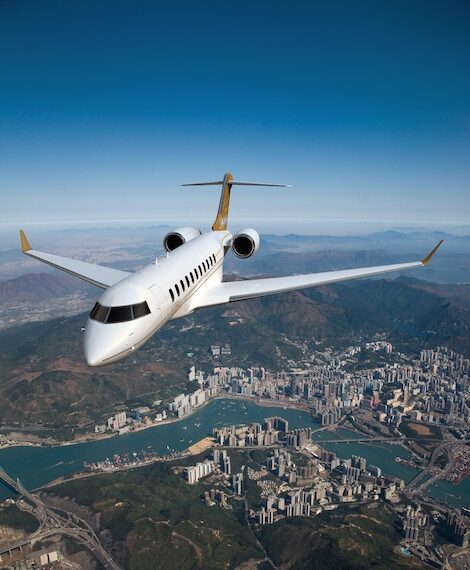Introduction
With a dominant 49.7% share of the global private jet market, the United States offers both business and leisure travelers an opulent and comfortable travel experience.
But for a smooth journey, manners and considerations are essential. Many travelers have inquiries regarding price, aircraft type, and where to begin looking.
As the cost of private jet travel decreases thanks to subscription-based and on-demand services like Uber, many travelers are now considering abandoning commercial service.
It is crucial for first-time travelers to be aware of what to anticipate and how to behave on a private plane as more people take their first flight on one.
Things You Must Know When Traveling On A Private Jet For The First Time
Given below is a list of some of the most important things that you must consider before planning your journey on a private jet charter—
1. The Departure Process
With a private jet charter, travelers can drive right up to the plane, load their bags, and board while leaving their car behind to be stored until their return.
However, proper etiquette, including parking the car and applying the parking brake in front of the aircraft, is essential.
Private jet travel allows for flexible departure times, but arriving past the scheduled time can cause disruptions and inconvenience for crew and passengers.
It is crucial to arrive at the airport early enough to complete the formalities required for a seamless departure.
Private aircraft have many advantages, but skipping customs is not one of them. Instead of waiting in long lines, customs officials frequently come to passengers, allowing them to make declarations and pay fees.
This small deed has the power to alter the course of history.
2. Checking All Your Documents
Your identification, including your passport and visa, will be carefully scrutinized when you arrive at the airport.
Flight crew, FBO, and immigration services use a manifest to list every passenger on a plane. The process can be accelerated by recording the documentation beforehand.
To board the aircraft, you will nevertheless need your passport. Flying privately eliminates the requirement to follow liquid restrictions or wait in a TSA security line.
A driver’s license will do for domestic travel, but for international travel, a passport is necessary.
3. These Aircrafts DO NOT Allow Unlimited Luggage
Private jets have more generous baggage allowances than commercial airlines, but it’s still important to pack lightly and avoid bringing unnecessary items.
To ensure a simple check-in process, limit your belongings to the necessities and ask about any specific restrictions.
It might be necessary to unload heavy bags. In contrast to commercial flights, some providers offer luggage transfer services and allow liquids.
The size of the compartment door or baggage weight limits may be affected by the number of passengers or the amount of fuel required for the flight.
Most small jets can accommodate seven roll-aboard suitcases, similar to commercial airlines’ carry-on luggage.
If you arrive with rigid bags, pilots and ground personnel might have trouble squeezing rigid bags into less-than-ideal cabinets and compartments for baggage.
Soft bags will lessen the need to ship any bags to your destination.
4. You Need To Get Permits For Your Pets
Pets can fly on private aircraft, unlike commercial airlines, where they are in the cargo hold. They may travel with you in the cabin if they have current documentation.
When you fly privately, you can bring your pet with you without worrying about adhering to stringent rules.
Prior to boarding the flight, they must have certain documentation, such as specific vaccinations for nations with a high risk of contracting diseases like rabies.
Create a pet passport by compiling all necessary information in one location to ensure your pet’s safety.
Contrary to most commercial aircraft, pets are frequently permitted in the cabin of pet-friendly private aircraft.
In order to ensure your pet’s safety and comfort during your trip, it is crucial to go over all of this information when making travel arrangements.
5. Tip The Pilot And The Crew
The crew of a private jet consists of a pilot, a co-pilot, and a flight attendant who serves the passengers.
Additional staff can be requested on a case-by-case basis, for example, a business-related in-flight secretary or a vacation-related massage therapist.
With private air travel, the possibilities are virtually endless, and chances are good that they can fulfill your desires.
However, there are distinctions between private jet pilots and those who fly for commercial airlines, such as the fact that many earn less than they may believe and that they take more time to plan the entire flight.
Giving a tip, which can be anywhere from $20 to $1,000, is a nice way for clients to let the server know they are happy with their service.


























